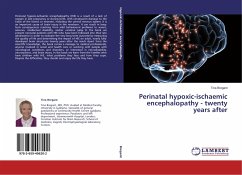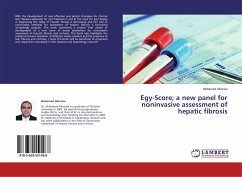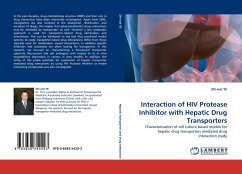
Highlights on the outcome of hepatic encephalopathy
Versandkostenfrei!
Versandfertig in 6-10 Tagen
27,99 €
inkl. MwSt.

PAYBACK Punkte
14 °P sammeln!
Hepatic encephalopathy (HE) is a serious neuropsychiatric complication of both acute and chronic liver disease. Symptoms of HE can include confusion, disorientation and poor coordination. A general consensus exists that the synergistic effects of excess ammonia and inflammation cause astrocyte swelling and cerebral edema; however, the precise molecular mechanisms that lead to these morphological changes in the brain are unclear. Cerebral edema occurs to some degree in all patients with HE, regardless of its grade, and could underlie the pathogenesis of this disorder. The aim of this book is to...
Hepatic encephalopathy (HE) is a serious neuropsychiatric complication of both acute and chronic liver disease. Symptoms of HE can include confusion, disorientation and poor coordination. A general consensus exists that the synergistic effects of excess ammonia and inflammation cause astrocyte swelling and cerebral edema; however, the precise molecular mechanisms that lead to these morphological changes in the brain are unclear. Cerebral edema occurs to some degree in all patients with HE, regardless of its grade, and could underlie the pathogenesis of this disorder. The aim of this book is to study hepatic (HE) in relation to the causes of liver disease, the common risk factors, the effect of the co morbidity in the outcome and mortality among the patients with HE based on a study, conducted many years ago at a specialized hospital of gastroenterology. This study concludes that HE is one of the most important and common complications of liver disease and associated with high mortality. The mortality tends to increase in the presence of comorbid conditions such as renal failure, infection and upper GIT bleeding. Early discover HE and early management can reduce mortality.












